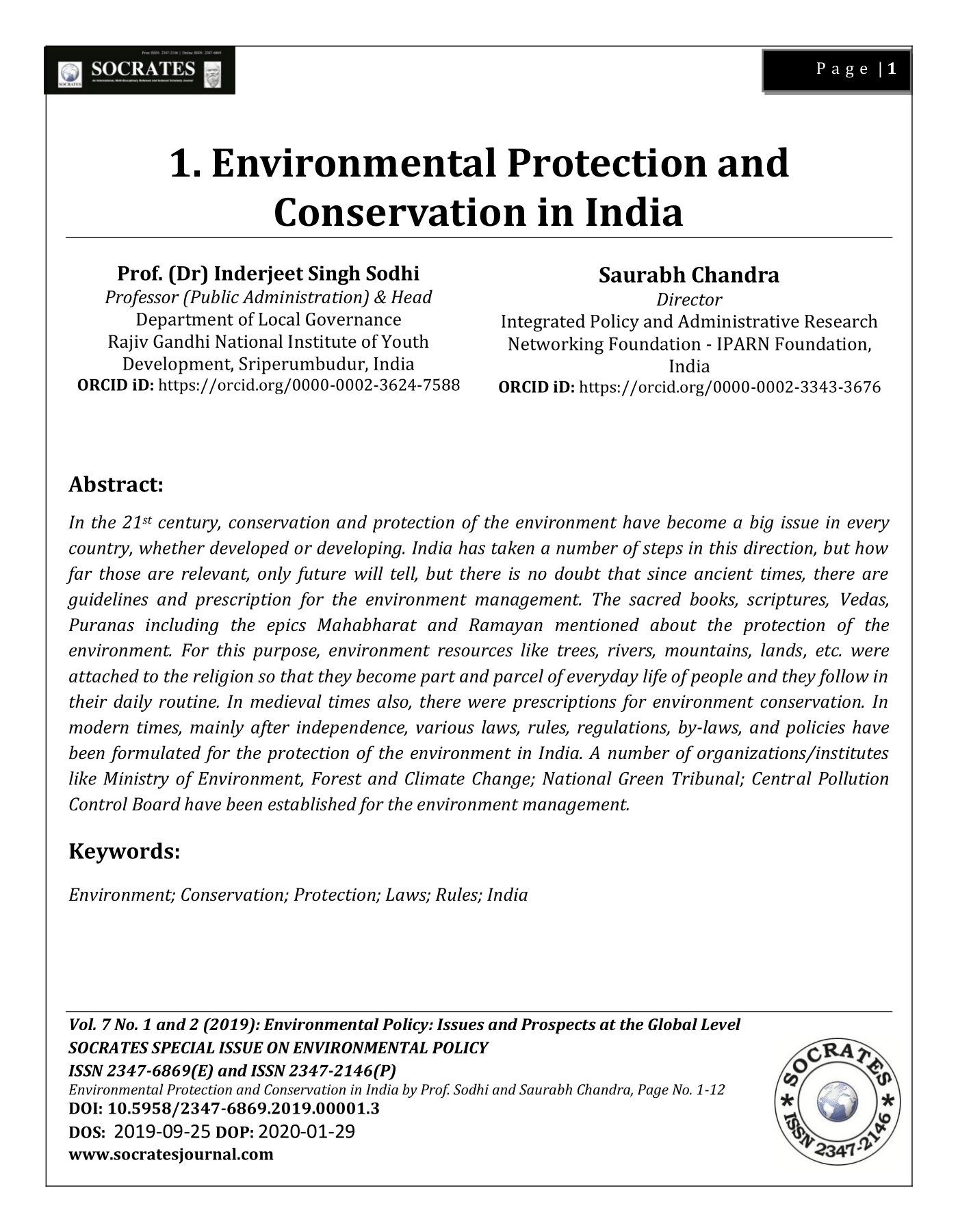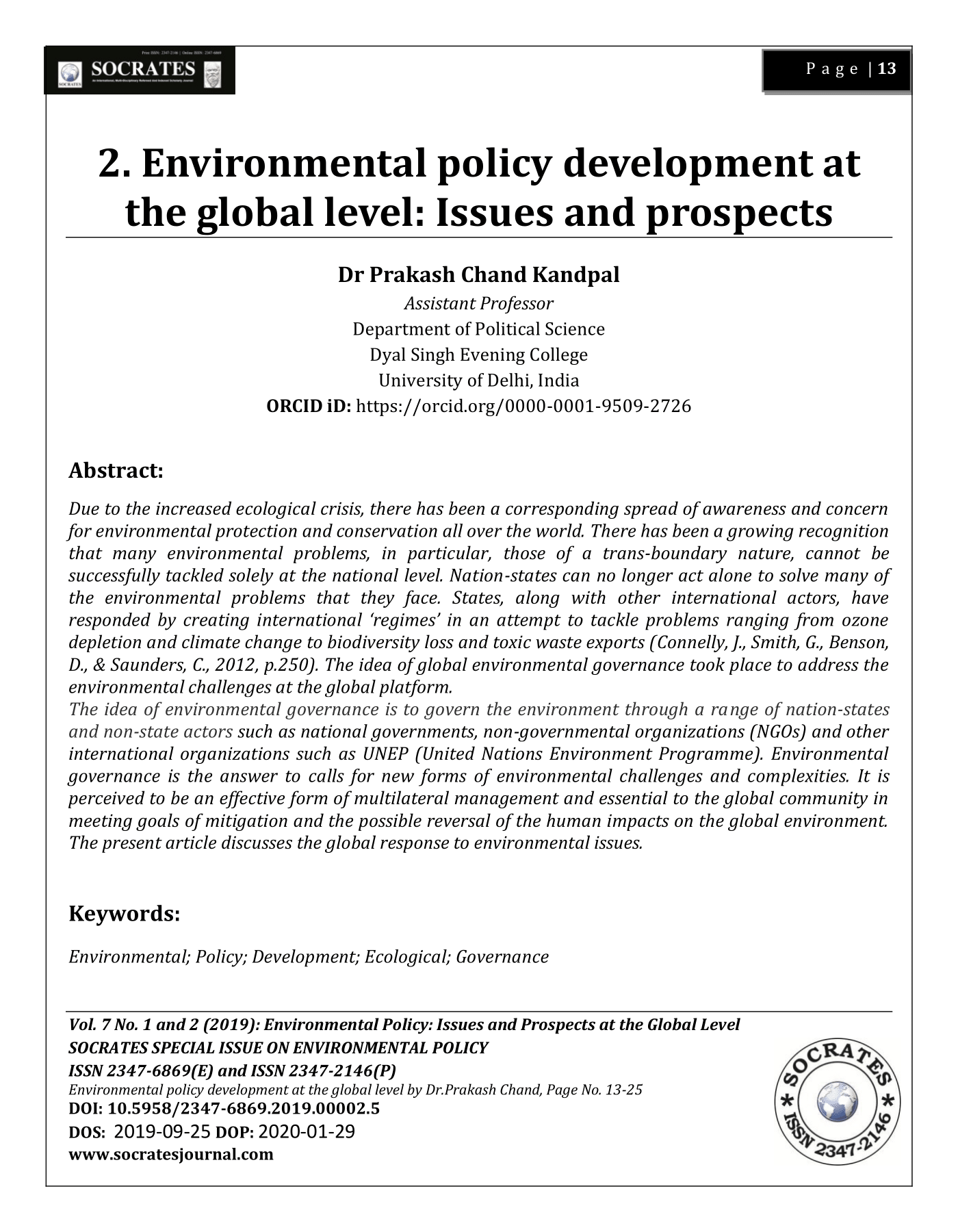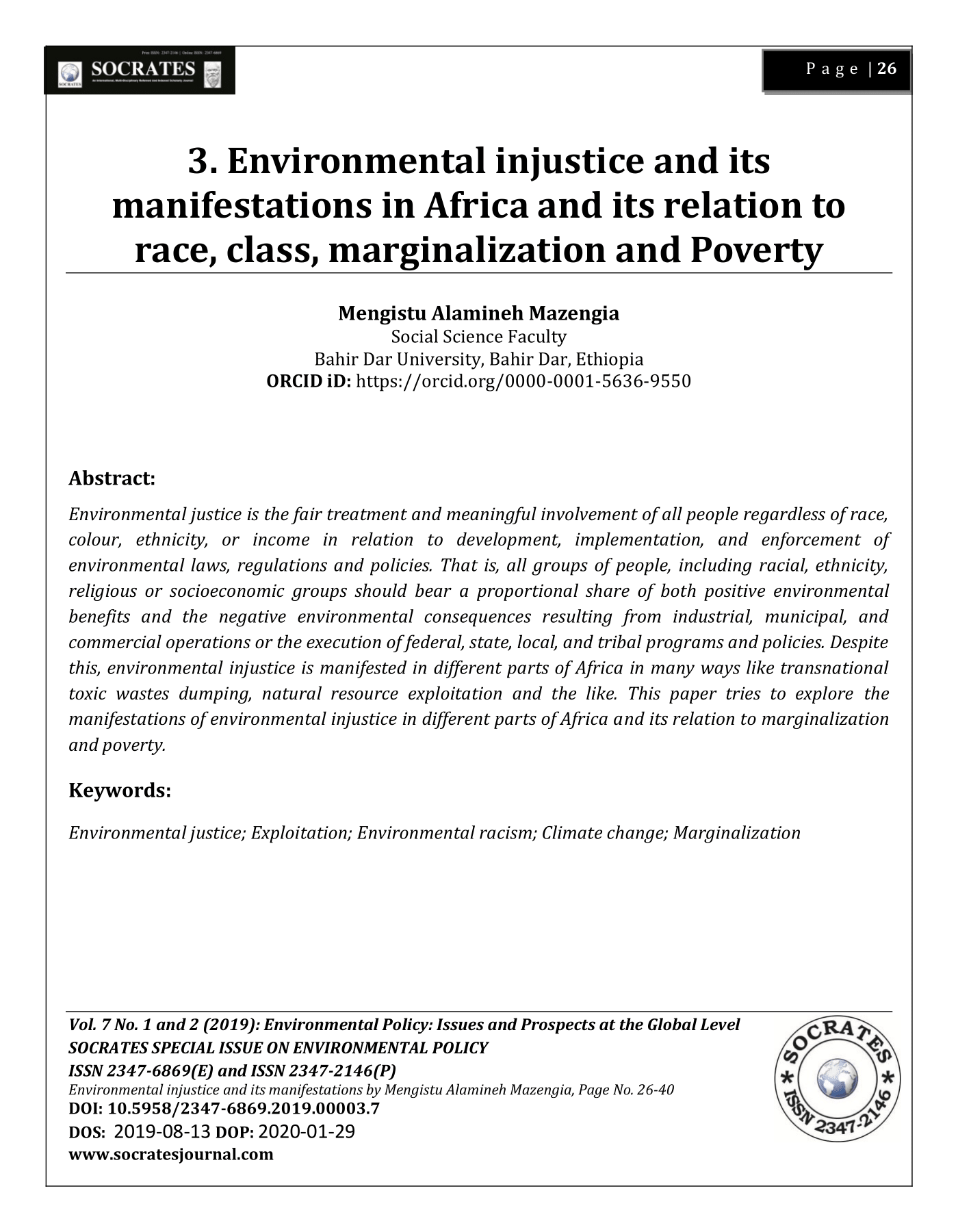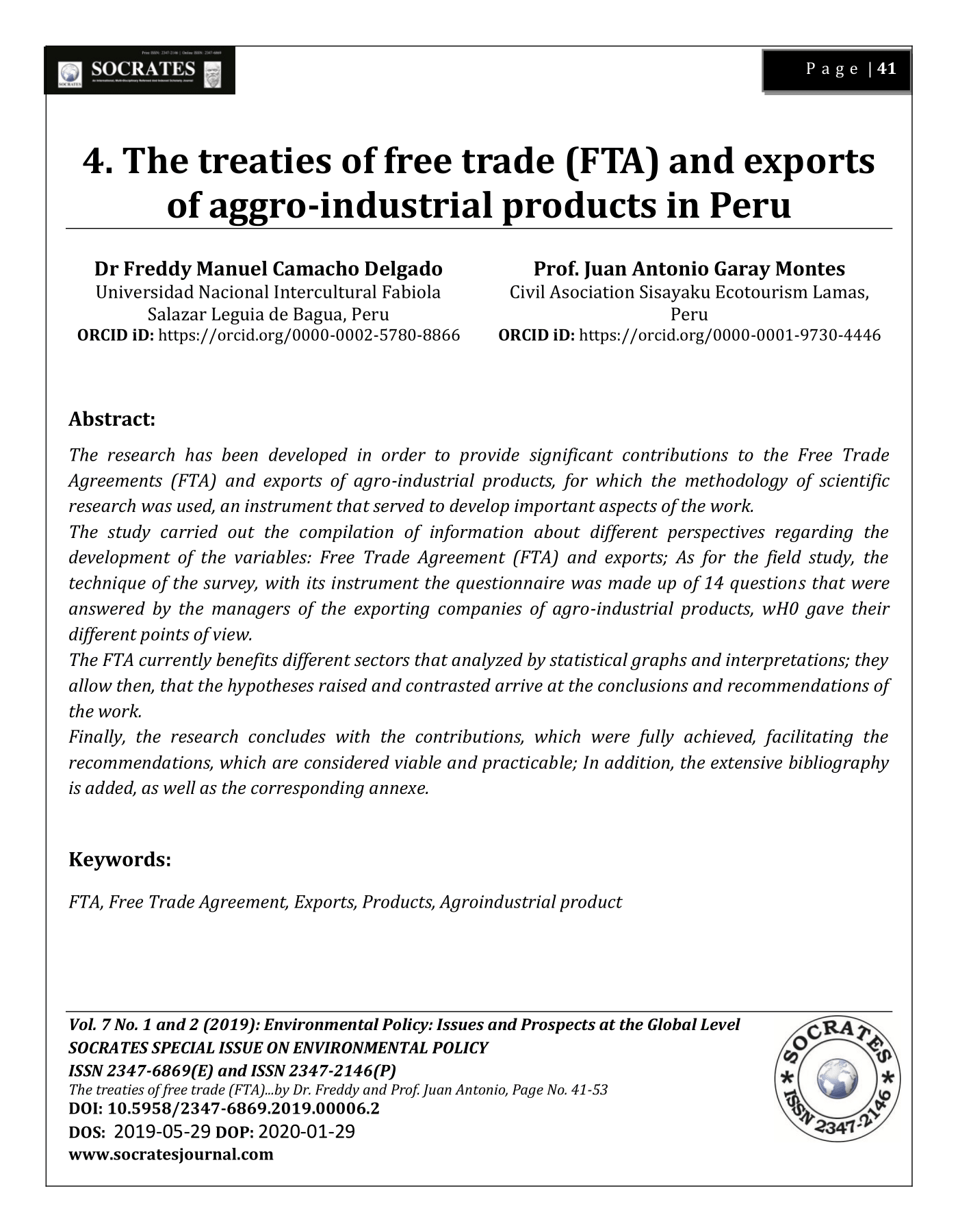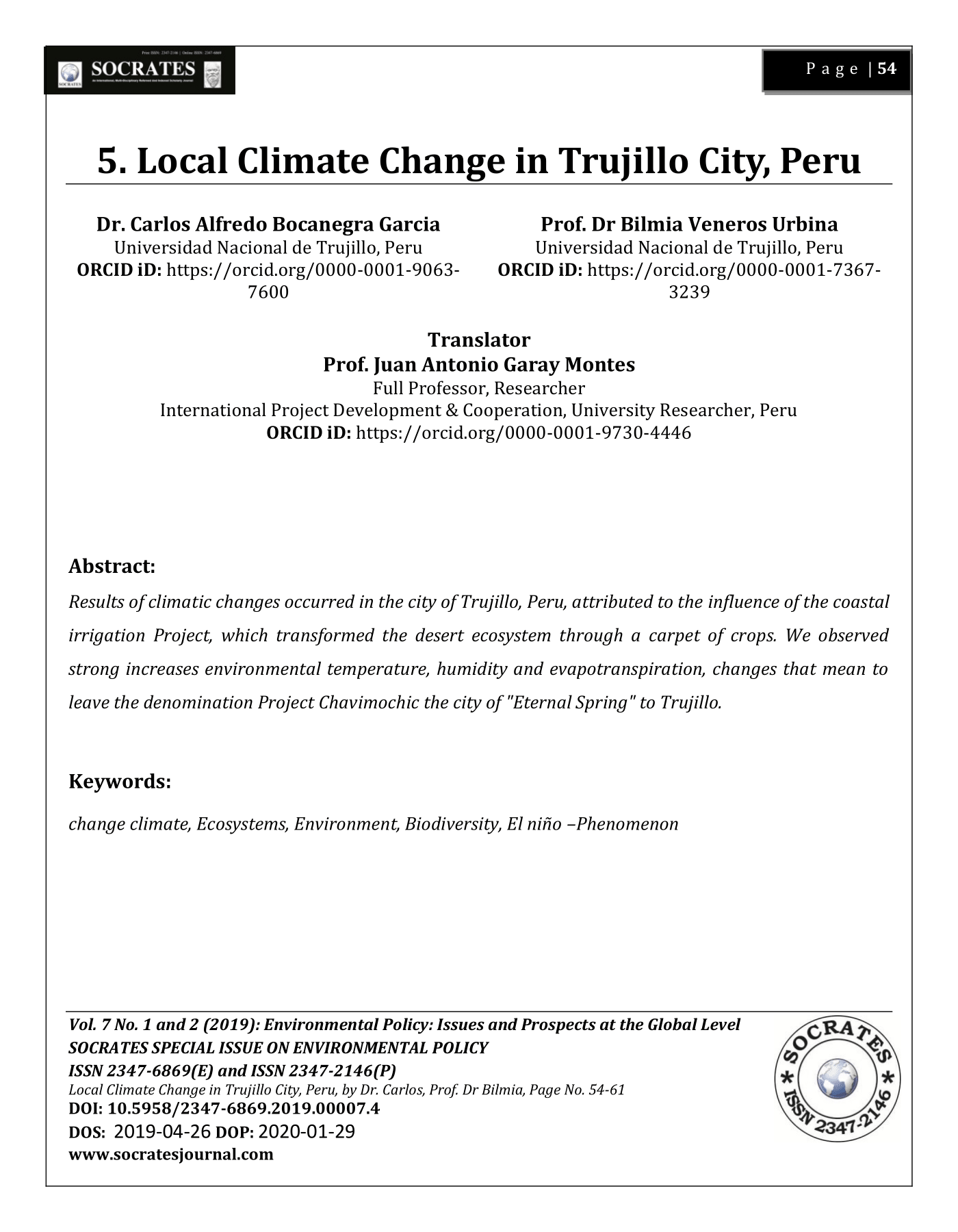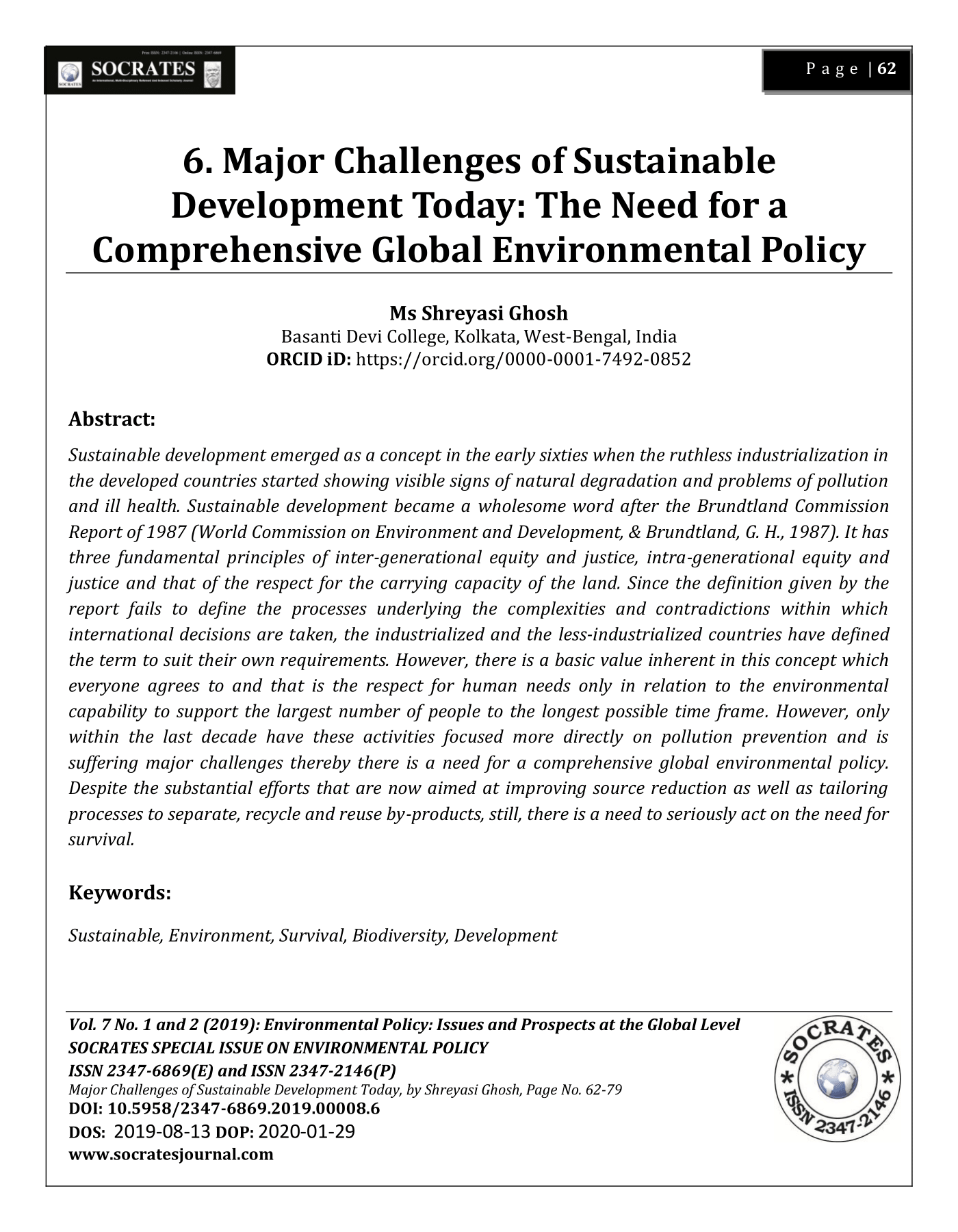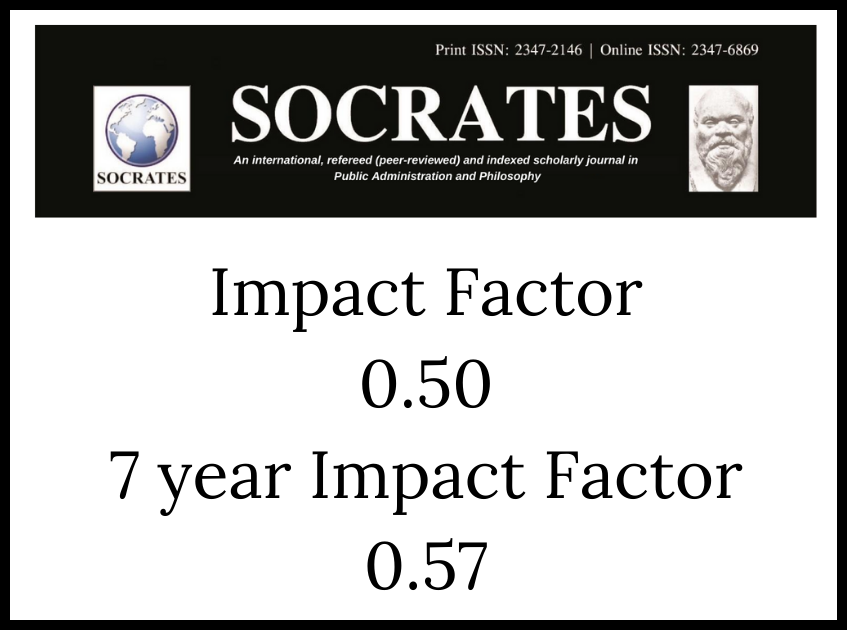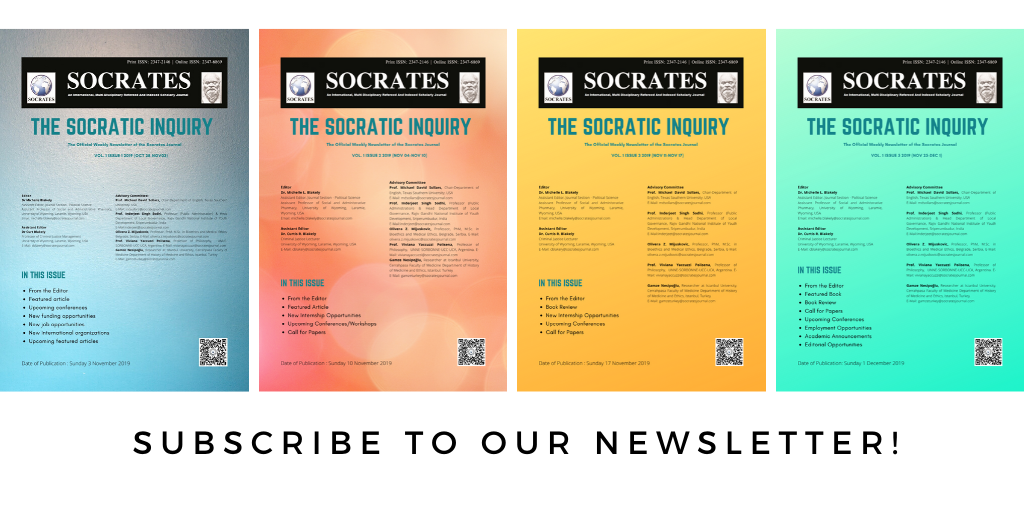Vol. 7 No. 1 and 2 (2019): Environmental Policy: Issues and Prospects at the Global Level

In the 21st century, conservation and protection of the environment have become a big issue in every country, whether developed or developing. Every nation has taken a number of steps in this direction, but how far those are relevant, only future will tell, but there is no doubt that since ancient times, there are guidelines and prescription for the environment management.
There is a total of six papers in this special issue of SOCRATES—four related to environment and two on climate change.
What initiatives for environment conservation and protection have been taken since ancient times in India is revealed in the paper of mine and Saurabh. We vividly looked into how the ancient scriptures helped in the protection of nature in India. Constitutional and legal provisions for environment management has also been discussed. Administrative organizations like Ministry of Environment, Forests & Climate Change; National Green Tribunal and Central Pollution Control Board have played an important role in ecological development in India, as we believe in light of our organization and objectives.
Prakash Chand has rightly observed that the year 1972 is a significant year in the history of environmental governance as it ushered for the world. Author rightly discussed the various environmental policy initiatives at the global level like Stockholm Conference, World Commission on Environment and Development (1987), Earth Summit (1992), Kyoto Protocol (1997), World Summit on Sustainable Development (2002), UN Conference on Sustainable Development (2012), United Nations Conference on Climate Change (2015), United Nations Climate Change Conference (2019). Author painfully discusses that the international community has not been able to achieve its desired goals, so environmental governance at the global level is far from meeting its imperative goals.
Mengistu Alamineh Mazengia sheds analytical light on the environmental justice with marginalization and poverty in Africa, considering the case of Koko, in Nigeria and the Ogoni people in Niger Delta. The author tries to conclude that environmental injustice affects the whole environment and climate, so the whole human community should participate and involve for positive impact.
Authors Freddy Manuel Camacho Delgado and Juan Antonio Garay Montes have tried to explore the issue through the treaties of free trade (FTA) and exports of aggro-industrial products in Peru.
How a climate change could affect a city, Carlos Alfredo and Bilmia Venero have tried to explore with respect to Trujillo city in Peru. The authors succinctly look in the context of ambient temperature, evapotranspiration, rainfall and relative humidity.
Whether the agendas of Brundtland Commission in context of sustainable development has succeeded is a big question, since still there are a number of challenges as Shreyasi Ghosh tries to explore in context of India with respect to air quality, water resources, water quality, solid wastes, hazardous chemicals, land degradation, soil loss, forests, wildlife, flora and fauna. The author suggests that substantial efforts are needed to improve source reduction as well as tailoring processes to separate, recycle and reuse by-products.
We believe that the readers will find this issue of SOCRATES informative and resourceful.
Issue EditorsProf. (Dr) Inderjeet Singh Sodhi
Saurabh Chandra

